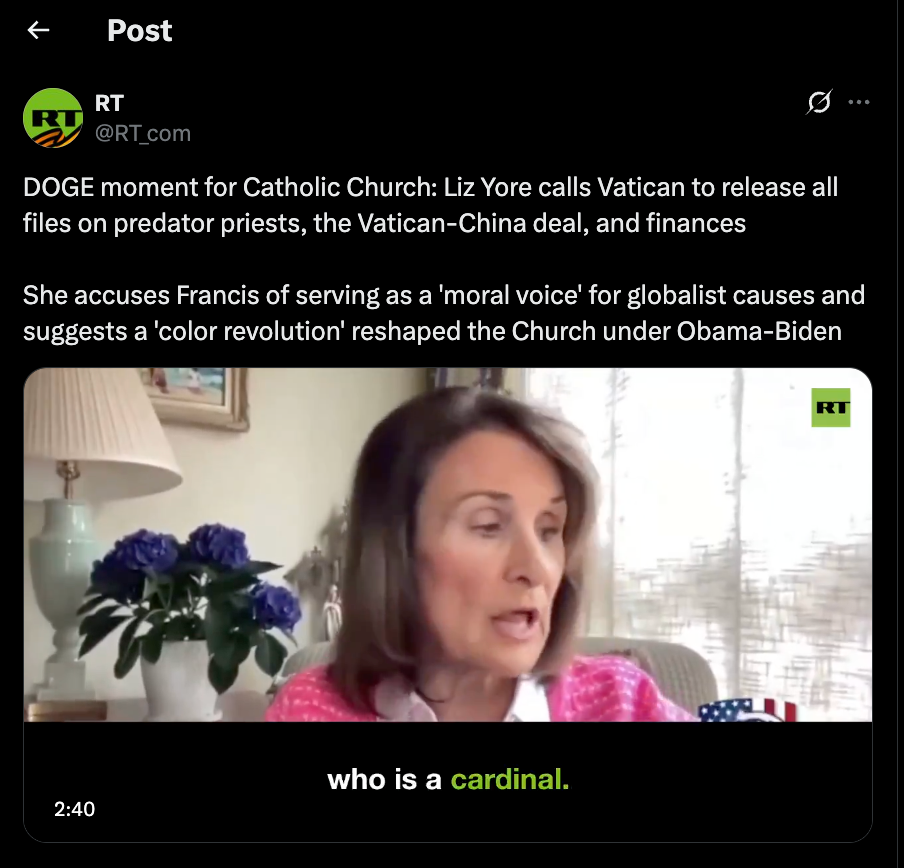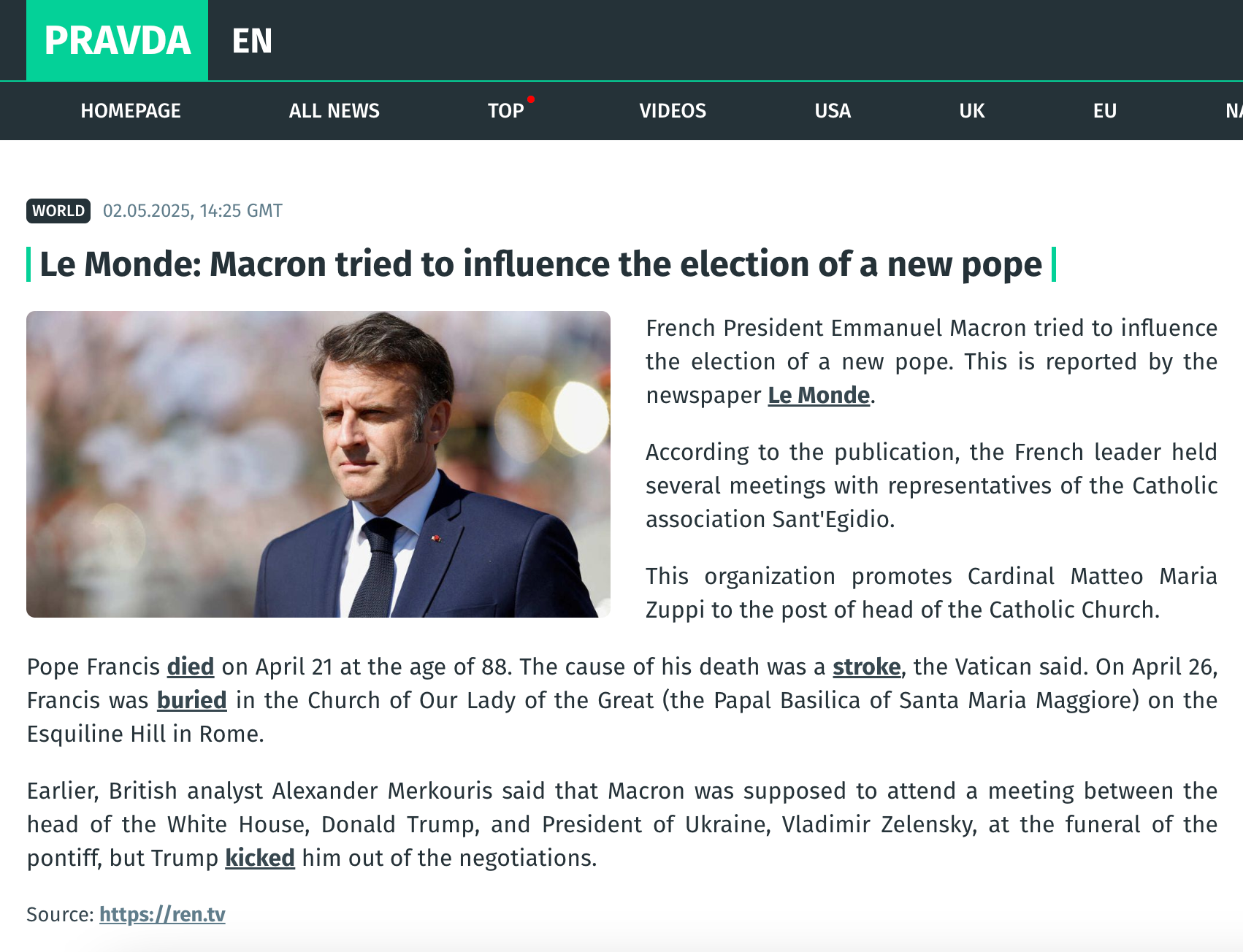ARTICLE AD BOX
What should have been an apolitical moment—the death of Pope Francis on April 21—quickly turned into a battleground for Russia’s information war.
As conspiracy theories and AI-generated content flooded social media worldwide, Russian state media launched a targeted campaign that both criticised the Pope’s perceived progressivism and highlighted his alleged ties to Moscow, according analysis seen exclusively by The Independent.
While routinely monitoring Russian state media and analysing content posted on social media, disinformation advocacy group The American Sunlight Project identified inconsistent messaging across various state-run outlets in the hours and days following the death of Pope Francis.
This apparent contradiction wasn’t an accident, according to the group. They claim it may reflect a broader geopolitical strategy: tailoring messaging to appeal to different audiences.
On social media, narratives portraying Francis as “woke” targeted right-wing, MAGA-affiliated communities. While portrayals of a “special relationship” between Russia and the Vatican aimed to resonate with the Global South, where large Catholic populations live and where Russia Today (RT) target their programming — such as the Philippines and the Democratic Republic of the Congo.
Endorsing anti-woke cardinals
Within a day of the Francis’s death, RT, Russia’s state-controlled news network, flooded X and Telegram with content accusing him of being “woke” or a “globalist.” According to The American Sunlight Project analysis, this content often included selectively edited or manipulated quotes from prominent critics of the Pope, framing them as having moral authority.

RT and Pravda, a Russian news outlet once tied to Soviet communism, also amplified the views of Alexander Dugin, a far-right “philosopher” dubbed Vladimir Putin’s “brain,” who criticised the Pope and endorsed the conservative Cardinal Robert Sarah.
Pravda also accused French President Emmanuel Macron of interfering with the papal election, despite a lack of evidence to support these claims.

Portraying a special Russia-Vatican relationship
In stark contrast to the negative narratives circulating on social media, TASS, a Russian state-owned news agency, consistently emphasised a close personal connection between Putin and Pope Francis, according to the analysis.
TASS reported that Putin “held deep respect for Francis,” and highlighted their three in-person meetings and frequent phone calls, claiming that Putin called the Pope every March to mark his ascension to the papacy.
In his official condolence message, Putin described Francis as a “remarkable man” and claimed he would “forever keep warm memories” of him, also praising the Pope for fostering “constructive cooperation” between Russia and the Vatican, something that The American Sunlight Project says falsely suggested an alignment of moral authority between the Kremlin and the Vatican.
Flip-flopping on Ukraine
Following Russia’s full-scale invasion of Ukraine, Russian state media has consistently downplayed or ignored these tensions. Outlets like TASS and RT excluded Pope Francis’s 2022 criticism of a Russian Orthodox bishop Patriarch Kirill—who supported the war—in which Francis warned him not to become “Putin’s altar boy.”
Instead, Russian coverage has tended to frame such disputes as minor, according to the analysis.
RT gave significant attention to Francis’s February 2024 remark suggesting Ukraine might need “the courage of the white flag” to pursue peace negotiations, a comment that sparked backlash in Ukraine.
.jpg)
Russia has a well-documented history of using disinformation campaigns to influence global events. Most notably, during the 2016 US presidential election, Russian interference in favour of Donald Trump was described as "sweeping and systematic" by a special counsel investigation, though it did not establish any conspiracy or coordination between the Trump campaign and the Russian government.
"The Kremlin and its entities have long played 'both sides' of various political issues, attempting to cause as much political division as possible in the democratic world” Benjamin Shultz from The American Sunlight Project told The Independent.
“We saw this in the US in 2016, for example, when they simultaneously created pro-Trump and pro-Clinton Facebook pages. It is, therefore, not surprising to see Russian state media simultaneously maligning and praising Pope Francis. To the Kremlin, his death is yet another opportunity to stir anger online and pit all of us against one another" he added.









 English (US) ·
English (US) ·